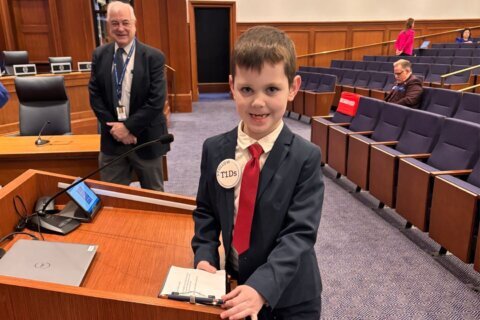Defendants in a Charlottesville, Virginia, civil trial, in which they allegedly conspired to bring racially-motivated violence to the 2017 Unite the Right rally, are using the livestreamed proceedings to spread hate, according to the Anti-Defamation League (ADL).
With some of the defendants representing themselves, questions of the plaintiffs, who allege physical and emotional harm from the rally weekend, have included racial and anti-Semitic jokes, references to Adolf Hitler and racial slurs.
“We’re seeing some of the defendants — white supremacists — essentially try to leverage the attention, to spread their hatred, their bigotry, their anti-Semitism and white supremacy,” said Oren Segal, vice president of the ADL’s Center on Extremism.
The trial is being livestreamed daily for the public consumption — many of the listeners are extremists, anxious to spread their interpretation of what’s happening in court.
“In some cases the defendants are going on podcasts and talking about what they’re doing,” said Segal. “It’s kind of bringing other extremists on a journey with them.”
In one case, a defendant asked a plaintiff to name friends who were with him during the rally and counterprotest. Since the plaintiff was part of the group that filed the suit, the federal judge said the defendants had the right to know the information.
Segal said the tactic amounts to real-time doxing, or releasing private information with malicious intent: “Whenever there are names of people out there it provides an opportunity to pile on them.”
In recent years, Segal said some social media platforms have taken steps to minimize digital harassment, in some cases suspending users accounts.
“But there’s still a small group of extremists and bigots who are celebrating the fact that they are getting this attention through this trial, and that’s the audience for many of these white supremacists,” Segal said. “In America, you can be as hateful as you want to be — that’s not illegal.”
Many of the defendants have already been convicted in criminal cases.
While the defendants are playing to the audience during the trial, Segal asked: “Did they intentionally come to commit violence, which is at the core of this case? In a few weeks or a month we will find out what the jury decides on that.”








